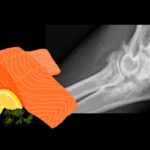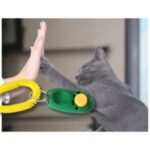That´s one big cat! World record big.
The longest cat in the world was Stewie the Maine Coon, at 4 feet long!
These big beauties are the largest domestic cats in the world. Thank goodness they are gentle and friendly.
They are the fourth most popular purebred cat in the US, according to Cat Fanciers´ Association.
Because I know most of you are now wondering, I will leave the list of the top 10 popular cat breeds at the bottom of the newsletter.
There are a few interesting stories about their origin:
- Hoping to escape the turmoil in France in 1789, Marie Antoinette sent her pet cats ahead of her to America. While she was busy dealing with the French Revolution , her cats were getting busy creating a new breed.
- Vikings brought their long-haired cats to New England (Similar to the Norwegian Forest Cats) in the 1700´s and they bred with domestic short-haired cats to create the Maine Coon
- The myth that they started as a mating between a domestic cat and a racoon is interesting to picture, but not scientifically possible!
What are they like?
BIG! Males generally weigh 13-18 lbs and stand up to 18 inches from toes to top of head. Females are smaller at 10-15 lbs.
They have large, tufted ears with “lynx tips,” which are longer hairs at the ends of their ears.
They have tufted paws that act like snowshoes, helping them walk on snow without sinking.
Friendly Personality.
Main Health Problems:
Hypertrophic Cardiomyopathy:
- Disease of the heart muscle causing thickening of the walls and poor function, with signs occurring as early as 1-2 years of age
- 20-30% of Maine Coons are affected, compared to 10-15% of the general cat population
- Due to an inherited genetic mutation
- A DNA screening test exists, and can be used by breeders to choose healthy breeding stock and by owners to screen and treat affected pets proactively
Hip Dysplasia:
- An abnormal development of the hip joint, leading to an unstable joint and often arthritis later in life
- Up to 20% of Maine Coons can be affected, compared to 6% in the general cat population
- No screening genetic test exists
- X-rays of hip joints can be used by breeders to try to weed out unsuitable breeding cats

One thing I bet you didn’t know…
A Tale of Two Nicky´s:
In 2004, a Maine Coon named Little Nicky became the first commercially purchased cloned pet. His owner paid $50,000 USD to Genetic Savings & Clone Inc. (love the name) to clone her beloved deceased cat Nicky, using his preserved DNA.




